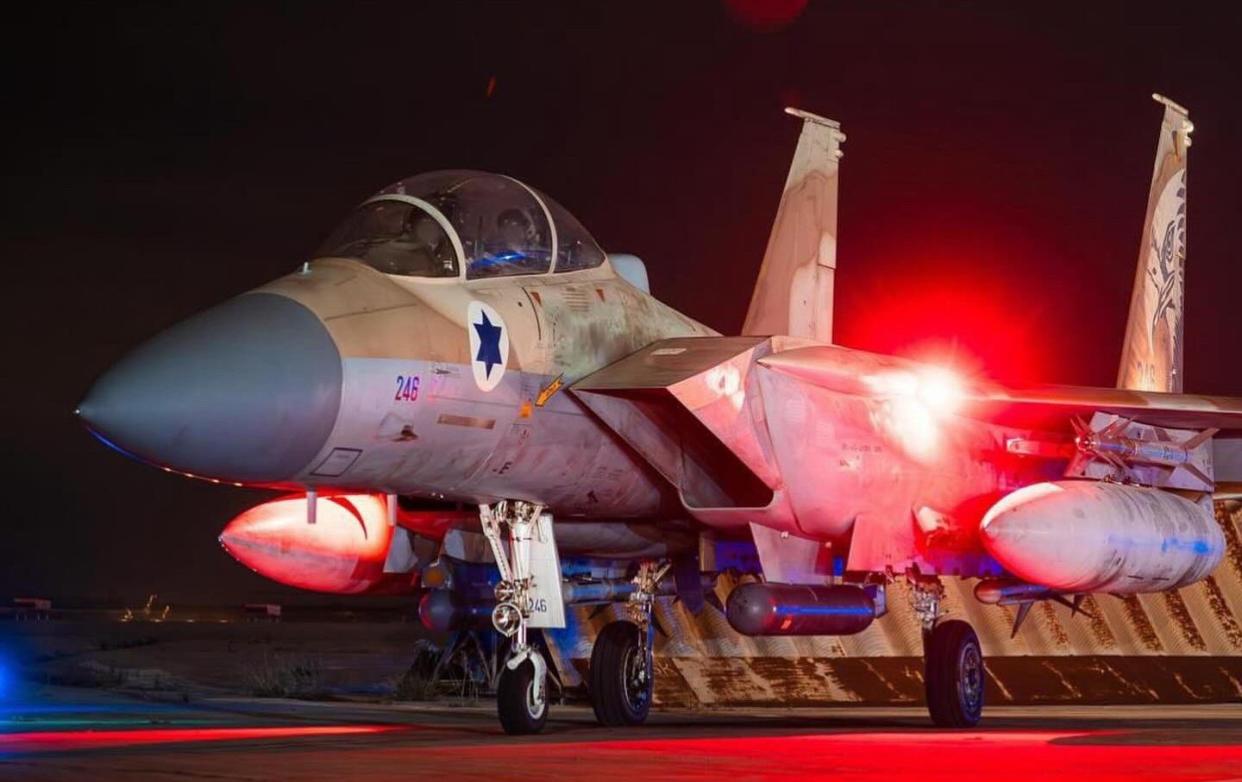How Israel might respond to Iran’s attack

Iran’s massive attack, which included hundreds of drones as well as missiles according to state TV, was an unprecedented escalation in this conflict.
Mr Netanyahu’s next moves will hinge above all on how damaging Saturday night’s attack proves to be and what exactly has been targeted by Iranian leaders.
Only a small number of the “hundreds” of drones and missiles launched by Tehran slipped past air defences on Sunday morning.
An Iranian air strike did damage a military base in the south of the country, the Israel Defence Forces (IDF) said.
Hitting only a few military targets may have allowed Iran to feel it has made its point without plunging the entire region into war.
Such a result may be within the limits of what Mr Netanyahu is prepared to tolerate at this stage.
He presumably thought carefully about the consequences of launching the consulate attack in Damascus – the cause for Iran’s retaliation – before he approved it.
Bold, choreographed attack
This might have been precisely what Tehran was aiming for: a bold, choreographed attack that it can claim has restored deterrence against Israel but that stops short of triggering all-out war.
Or, Mr Netanyahu may launch an in-kind response in which Israel carries out air strikes on targets in Iran, similar to those which may be in the firing line in Israel, such as military bases or government buildings.
Other obvious options for Israeli retaliation would be air strikes on the Islamic Revolutionary Guard Corps headquarters or its bases around Iran.
Some analysts say this round of hostilities could last a few days or weeks. At some point, the two sides might cease hostilities, with both feeling they have made their stand.
Nightmare scenario
If things escalate, however, there remains a grim possibility of full-scale war between Iran and Israel, a nightmare scenario that would carry enormous cost to human life on both sides and probably drag the United States – and potentially Britain – into the fray.
Joe Biden, the US President, reportedly warned Mr Netanyahu on Sunday morning that the US will not participate in any attack by Israel on Iran.
Another key factor is Iran’s nuclear programme, which Israel has been working for years to dismantle via covert strikes. This new crisis might prove an opportunity to destroy the nuclear programme once and for all.
There are a few reasons to doubt that Iran truly wants war with Israel.
Experts say it would be ill-prepared militarily, and it is already under crippling Western sanctions. There is also massive internal opposition to the Iranian regime, as reflected in 2022’s enormous protest movement.
But this attack was launched directly from Iranian territory and, the regime claims, includes missiles, not just drones.
This does not fit the pattern of Iran’s previous conduct, in which it has launched covert attacks on Israel or relied on regional proxies to do its bidding.
That means Israel – and the West – is now in uncharted and dangerous territory.

 Yahoo News
Yahoo News 
